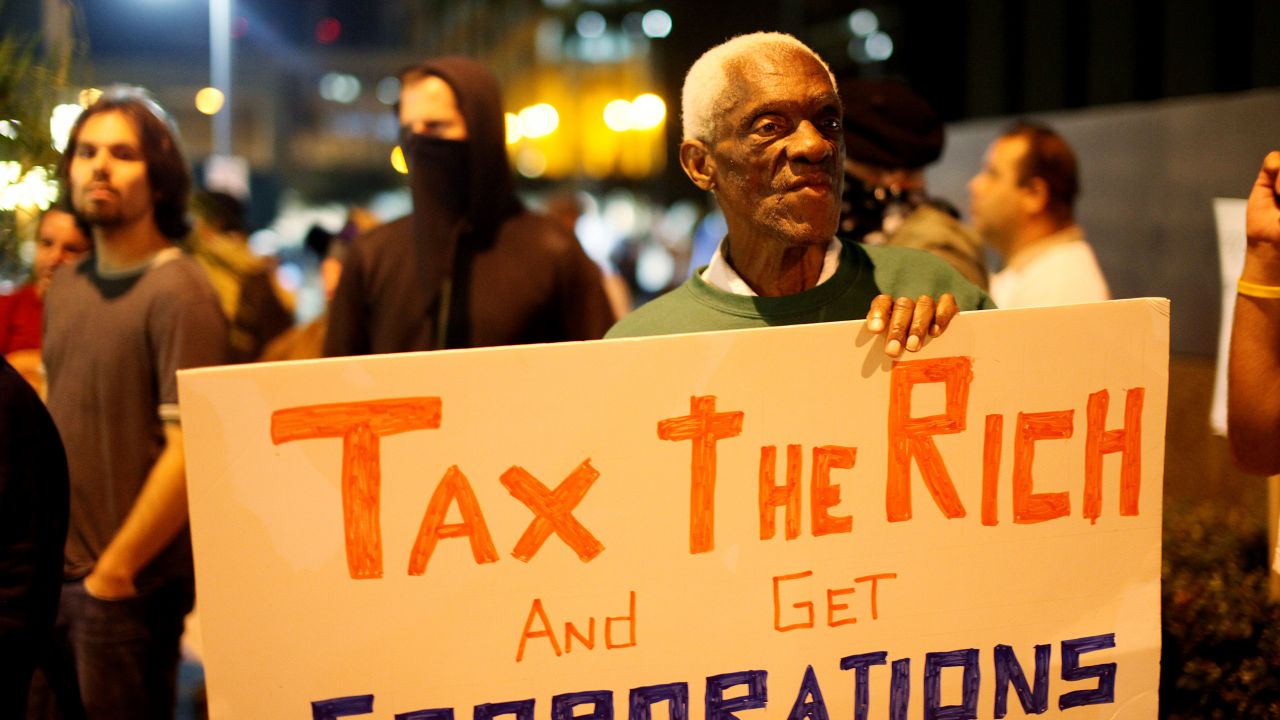
(Photo by Sandy Huffaker/Corbis via Getty Images)
President Biden campaigned on sweeping policy plans; aiming to boost the economy, he pledged to revitalize America’s decaying infrastructure, build an equitable clean energy future and create millions of well-paid jobs. But unless Biden hikes taxes on the rich, he may not be able to fulfill any of these visions.
According to a new briefing paper published by the Institute for Policy Studies, the richest 0.01% of Americans pay only one-sixth of what they paid in taxes half a century ago. Bob Lord and Chuck Collins, its co-authors, explain how, over the last 65 years, there has been a “systematic shift in America’s tax policy, with taxes on wealth moving inexorably lower and taxes on work moving inexorably higher.” In other words, people who work for their money often pay their fair share, but the ultra-rich, who often inherit and invest their wealth, do not. Taxation on income alone can not and does not keep the billionaire class from hoarding wealth.
Reagan ushered in an era of major tax breaks, but, according to the briefing, both political parties have carried on his legacy. “Starting in 1980, tax cuts for the wealthiest Americans have followed a clear pattern,” Lord wrote. “When Republicans have held power, tax cuts for those at the top have been slashed; When Democrats have held power, they’ve enacted a few slight tax increases, but mostly have maintained the status quo.” What does that status quo look like? It is members of an elite class sitting on piles of invested money while paying a lower tax rate than the average American.
Donald Trump easily slots into this pattern. The Tax Cuts and Jobs Act that he introduced in 2017 dropped the tax rate for top earners from 39.6% to 37%. Meanwhile, the corporate tax rate fell sharply by 14 percentage points, taking it from 35% to 21%. The significance of such a deep cut can not be overstated: After the TCJA was enacted, the government lost a spectacular $233 billion in corporate tax revenue.
Biden, who pitched himself as the antidote to Trump, assured voters that he would create a tax policy that rewards work, not wealth. Since assuming office, he has proposed a slight increase on the tax rate for the highest income bracket, aiming to restore it back to 39.6%. But by and large, his proposals only modestly alter Trump’s tax policy. Biden has suggested hiking the corporate tax rate to 28%, still seven percentage points behind the 2015 rate and well short of public push.
To the disappointment of the progressive wing of the party, early in his campaign, Biden rejected representatives’ calls for a “wealth tax.” In the IPS briefing paper, The Case for a U.S. Wealth Tax, Bob Lord writes that “a wealth tax, an annual levy on the assets of our nation’s wealthiest, would help us significantly check and constrain our Billionaire Class.” To illustrate the flaws of our current system, he points to former Amazon CEO Jeff Bezos: “His massive $100-billion private fortune stems mostly from his stake in Amazon. The more Amazon shares appreciate in value each year, the greater the Bezos personal fortune. But this growth in the Bezos fortune does not show up on the annual Bezos income tax return — and faces no tax.”
Treasury Secretary Janet Yellen argues that raising taxes is a necessary prerequisite to the execution of Biden’s policy vision. “President Biden’s economic strategy and investments in people, infrastructure, research and development will create good-paying jobs and make our economy more productive,” she stated in her confirmation hearing. “The President believes that it is critical that we raise additional revenues from the wealthiest Americans and corporations to cover our long-term obligations to our nation’s seniors and many others.”
Biden’s team is currently working out the details of an expansive infrastructure plan that could cost a couple trillion dollars. Last week, Yellen said that incremental tax increases will be used to pay for part of it, but already there is pushback: several business lobby groups have warned Biden against raising corporate taxes, arguing that hiking the rate will hamper competition and slow economic recovery.
As Collins and Lord see it, the political establishment is yet again failing to significantly transform tax policy: “[T]axes on the ultra-wealthy have nearly been eliminated. The members of the top 0.1 percent pay only one-sixth of what they paid a half century ago in taxes. What used to be paid every two months is now paid every twelve. And there’s no sign this trajectory is changing.”



